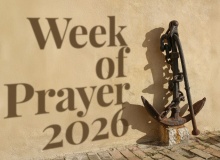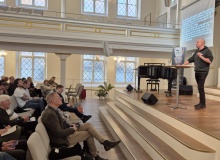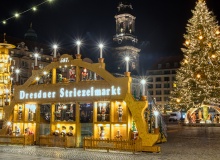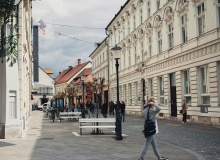


From 11 to 18 January, Evangelical Alliances in Europe, led by the Italian Alliance this year, invite churches to pray together through Psalm 78.
Cropped(1).jpg)
Two of the victims came from a free evangelical church background. Churches open their doors for prayer and support on 9 January: “A place to express personal grief but also powerlessness before God”, says the Evangelical Alliance.

Many homes, businesses, and church buildings are under water. Local congregations are helping where possible, but the scale of the damage exceeds their limited resources.

The latest update from the Observatory of Religious Pluralism reveals a growing presence of religious minorities within Spain's increasingly pluralistic religious landscape.

The book Francoism against Protestants uncovers forgotten stories of repression during the Franco dictatorship, shedding light on the past and present of evangelical communities in Spain.
.png)
Evangelicals in the media, collaboration in the Balkans, growing church attendance in Western Europe, Christians in Ukraine... Here are ten topics we covered in depth in 2025.
.jpg)
The ‘My voice, My choice’ resolution is adopted by a majority of the EU parliament. A Christian MEP says “it is painful to see that the majority of the European Parliament does not recognise that unborn life need protection”.

Anabaptists celebrate their 500th anniversary in 2025. We spoke with Spanish pastor Agustín Melguizo about the past, present and future of this movement.
.jpg)
According to the 2025 confirmation preparation survey, 67 percent of boys and 56 percent of girls believe in the existence of God. 75 percent of Finnish youth attend confirmation classes. Are parishes able to respond to young people's growing interest?

The Evangelical Alliance and other groups in Sweden worked together in a gathering for 130 people. Issue networks are inspired by the European Leadership Forum model.

In the trial at the Provincial Court of Madrid, the pastor is accused of having diverted funds collected by church members for private use without the congregation’s knowledge.

The Bibel TV initiative aims to “bring back everyday conversations about God” and reaches both cities and villages.
.jpg)
The revival of interest in faith, technological advances, polarization, and the importance of discipleship were topics of conversation for the 700 participants in Benidorm at GBU Spain's major event.
Cropped(1).jpg)
The EPB in Brussels consisted of a series of gatherings. It began with a welcome dinner reception on December 2 at the beautiful Royal Museum of Fine Arts of Belgium, providing an opportunity for participants to connect in an informal setting.

Places of worship in the southwestern German state suffered damage worth over a million euros. The figures are “stable overall”, says the government.
.jpg)
The cost of living and the defence of Europe are the issues that most concern citizens, but priorities vary from country to country. How should Christian politicians in the European Parliament act? We asked the European Christian Political Party.
.png)
Stephan Maag walks through cities across the continent starting conversations about faith. In Monaco, the police detained him and forced him to leave without giving convincing explanations.

We talk to professor, author and lecturer Paul S. Williams about the challenges of discipleship in a fast-paced world, the pressure of secularism, and what it means to have a relevant faith<

After the attack on the Magdeburg Christmas market last year, that killed 6 people, “the shock and grief drew many people to churches”, say evangelical leaders.
.jpg)
The Italian evangelical body say it is time to “strengthen the bridging role of European evangelicalism: do not re-propose lost centralities but connect the roots and innovations of the global South, facilitating interaction, collaboration, and mutual learning”.
.jpg)
Joint worship services in dozens of municipalities could be a catalyst for greater collaboration between churches on the ground, says the CNEF.

The parliament drafts the law with the aim of complying with the the European Union standards. Faith groups say that the law goes beyond equality between men and women, promoting ideological issues.
.jpg)
The Court of Justice of the EU has ruled in favour of two men who married in Germany but whose legal union was not recognised in Poland.

Although the law was passed in July, a campaign led by conservative groups and medical associations gathered 46,000 signatures to force another referendum.

The Observatory on Intolerance and Discrimination against Christians in Europe also reports a rise “in legal restrictions affecting freedom of religion”.

Las opiniones vertidas por nuestros colaboradores se realizan a nivel personal, pudiendo coincidir o no con la postura de la dirección de Protestante Digital.